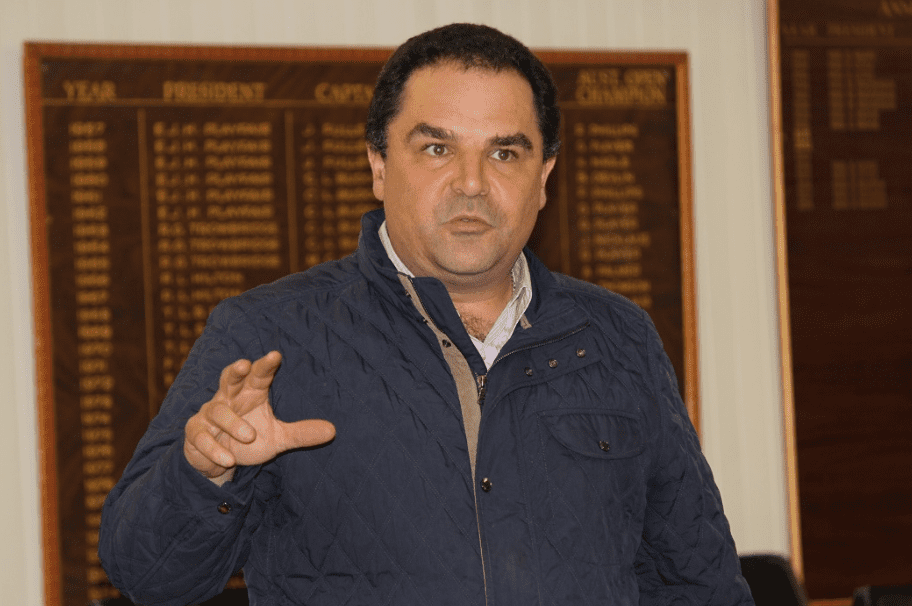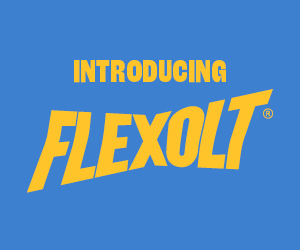
SA Liberal MP Tony Pasin makes a point at the Livestock SA regional meeting in Keith.
A MAJOR live sheep exporter has refuted claims that exporters are already transitioning away from Western Australia in the face of the Albanese Government’s plan to phase out the sea trade.
Federal Member for Barker Liberal Tony Pasin told the Livestock SA regional meeting at Keith on Wednesday that live sheep exports out of Western Australia were “done” and that the cattle would be next.
“We’re talking about a (live sheep) phaseout, but I can tell you the exporters have already left.
“Emanuels, Kuwaitis, why would you hang around for two more years investing in the infrastructure and doing these things if your business has no future?” he asked.
“They’re very smart people, they have already left, they’re not interested.”
Mr Pasin said although sheep survivability on vessels is at record levels and sheep gain weight during the voyages. He said the Labor Party took the live sheep phaseout policy to two elections, but based on ideology, not science, to be implemented after the next election “although practically it’s happening now.”
Federal Minister for Agriculture Fisheries and Forestry Murray Watt has repeatedly denied there were any plans to end live cattle exports; however, Mr Pasin said he anticipated that once the Albanese Government phased out the live sheep trade and if they win the next federal election, on the way to the subsequent election they will turn to live cattle exports.
“Why wouldn’t they, what’s the difference between a sheep and a cow on a boat, absolutely no difference.
“You see, it’s because they are ideologically opposed to this trade,” he said.
Mr Pasin said producers could expect domestic cattle prices to drop if a live cattle export phaseout was implemented. Also the Western Australian Merino ewes that had previously restocked eastern states properties after droughts broke “won’t be there” after the live sheep trade is phased out, he said.
“So it will impact on our industry – it is completely connected.”
In practical terms, the live sheep trade is ‘gone now’ – Pasin
Mr Pasin said exporters are telling the Coalition that if there is no future past the next election then they need to start making arrangements now for that exit.
“Which means they won’t be investing in plant and equipment today and they are looking for alternative markets.
 “They need markets that will sustain them from 2026 onwards, they are basically disinterested in our market,” he said.
“They need markets that will sustain them from 2026 onwards, they are basically disinterested in our market,” he said.
“They are transitioning away from Australia, they are not going to wait for an arbitrary deadline, they need to secure their supply chains.
“Technically it’s not to be phased out until after the next federal election, but in practical terms it has gone now.”
Mr Pasin said it would be great if Western Australian producers could change the Federal Government’s mind.
“But the reality is unless that decision is changed almost immediately it will be too late.”
“I hope we can achieve change, but the reality is it is going to require an almost 180 degree about face from the Albanese Labor Government and I don’t think having taken this to two successive elections that they are going to do that,” he said.
“I don’t think there is any pathway to arrest this trajectory to the phaseout, save and except a change at a federal level at the next election and even then we’re going to have to provide exporters with long-term confidence about that industry, because decisions can’t be made on three-year rolling election cycles.”
No change to exporters plans – RETWA
SA producers urged to be ‘loud and proud’
Mr Pasin said all South Australian producers need to be “loud and proud” in support of the trade and the recent WA polling showed there has been a shift.
“I think it’s not just because of live sheep and what’s happening in the regions, but it’s also because of the next bit of legislation that presents a sovereign risk … that’s the cultural heritage act.”
He said Labor governments loved national consistency and he disputed advice to Livestock SA that the SA Scrivens Government had no plans to bring in cultural heritage laws similar to Western Australia’s.
“So anyone that’s telling you that the Aboriginal Cultural Heritage Bill will be quarantined to WA, I’m sorry, Clare (Scrivens, South Australian Premier) who has obviously provided that advice, it’s bullshit.
“Because Labor operatives who actually know what they’re saying in Canberra are telling me that this is the plan … and these are members of the Right of the Labor party who don’t like this idea at all … that similar legislation over time will be rolled out around the country.”
Mr Pasin said a huge test for the legislation will be the Rockingham by-election in WA – former premier Mark McGowan’s seat — this weekend, with the Liberal Party using the likely impact of cultural heritage laws on peri-urban development in its campaigning.
Any electoral swing on heritage laws and the Voice will be too late
However, Mr Pasin did not believe opposition to the cultural heritage law and the support for a Voice ‘No’ vote would be able to translate into sufficient national electoral support for government change to save the live sheep trade.
“I think live sheep is done, it’s done now.
“I can’t tell you enough how many of those producers that I’m speaking to have told me “we’re out”, he said.
“That’s why you are seeing so much of the kill space in abattoirs on the east coast being taken up by sheep and lambs in particular that are coming over (from Western Australia).
I think a massive kind of intersection in the road of Australian public policy is coming in October,” Mr Pasin said.
“October, November, December, whenever Albo decides that we are to vote on the Voice, I think that will be a massive turning point.
“I think a lot of people are thinking about voting ‘No’ on the Voice because they are sick of the woke crap,” he said.
“They see this as part of and I think this will cause Australian policy makers and decision makers to say ‘goodness we are in the bubble, we spend all our time talking to elites.’
“People out there are not interested in what the Canberra bubble is talking about.”

HAVE YOUR SAY